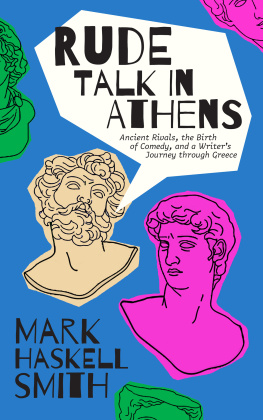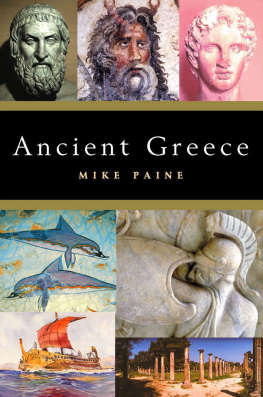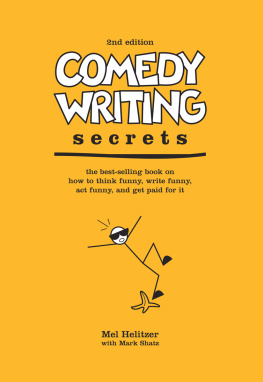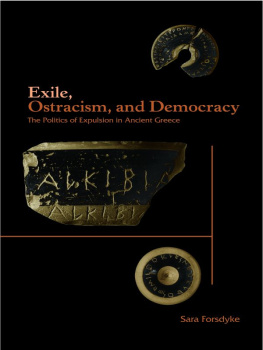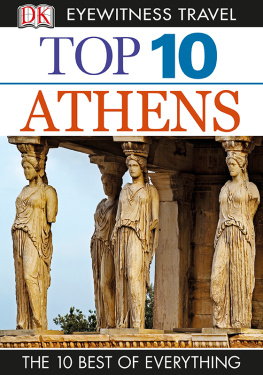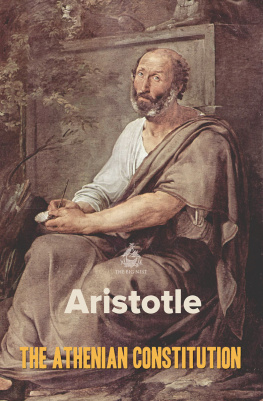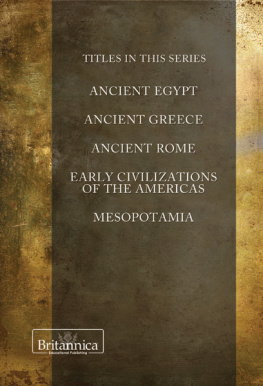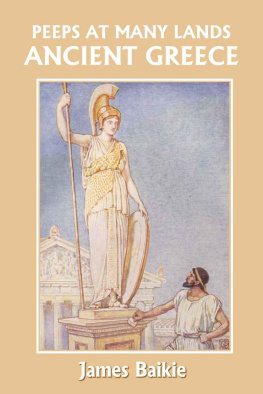Mark Haskell Smith - Rude Talk in Athens: Ancient Rivals, the Birth of Comedy, and a Writer’s Journey through Greece
Here you can read online Mark Haskell Smith - Rude Talk in Athens: Ancient Rivals, the Birth of Comedy, and a Writer’s Journey through Greece full text of the book (entire story) in english for free. Download pdf and epub, get meaning, cover and reviews about this ebook. City: Los Angeles, year: 2021, publisher: The Unnamed Press, genre: Art. Description of the work, (preface) as well as reviews are available. Best literature library LitArk.com created for fans of good reading and offers a wide selection of genres:
Romance novel
Science fiction
Adventure
Detective
Science
History
Home and family
Prose
Art
Politics
Computer
Non-fiction
Religion
Business
Children
Humor
Choose a favorite category and find really read worthwhile books. Enjoy immersion in the world of imagination, feel the emotions of the characters or learn something new for yourself, make an fascinating discovery.
- Book:Rude Talk in Athens: Ancient Rivals, the Birth of Comedy, and a Writer’s Journey through Greece
- Author:
- Publisher:The Unnamed Press
- Genre:
- Year:2021
- City:Los Angeles
- Rating:3 / 5
- Favourites:Add to favourites
- Your mark:
Rude Talk in Athens: Ancient Rivals, the Birth of Comedy, and a Writer’s Journey through Greece: summary, description and annotation
We offer to read an annotation, description, summary or preface (depends on what the author of the book "Rude Talk in Athens: Ancient Rivals, the Birth of Comedy, and a Writer’s Journey through Greece" wrote himself). If you haven't found the necessary information about the book — write in the comments, we will try to find it.
In ancient Athens, thousands would attend theatre festivals that turned writing into a fierce battle for fame, money, and laughably large trophies. While the tragedies earned artistic respect, it was the comediesthe raunchy jokes, vulgar innuendo, outrageous invention, and barbed political commentarythat captured the imagination of the city.
The writers of these comedic plays feuded openly, insulting one another from the stage, each production more inventive and outlandish than the last, as they tried to win first prize. Of these writers, only the work of Aristophanes has survived and its only through his plays that we know about his peers: Cratinus, the great lush; Eupolis, the copycat; and Ariphrades, the sexual deviant. It might have been the golden age of Democracy, but for comic playwrights, it was the age of Rude Talk.
Watching a production of an Aristophanes play in 2019 CE and seeing the audience laugh uproariously at every joke, Mark Haskell Smith began to wonder: what does it tell us about society and humanity that these ancient punchlines still land? When insults and jokes made thousands of years ago continue to be both offensive and still make us laugh?
Through conversations with historians, politicians, and other writers, the always witty and effusive Smith embarks on a personal mission (bordering on obsession) exploring the life of one of these unknown writers, and how comedy challenged the patriarchy, the military, and the powers that be, both then and now. A comic writer himself and author of many books and screenplays, Smith also looks back at his own career, his love for the uniquely dynamic city of Athens, and what it means for a writer to leave a legacy.
Mark Haskell Smith: author's other books
Who wrote Rude Talk in Athens: Ancient Rivals, the Birth of Comedy, and a Writer’s Journey through Greece? Find out the surname, the name of the author of the book and a list of all author's works by series.

